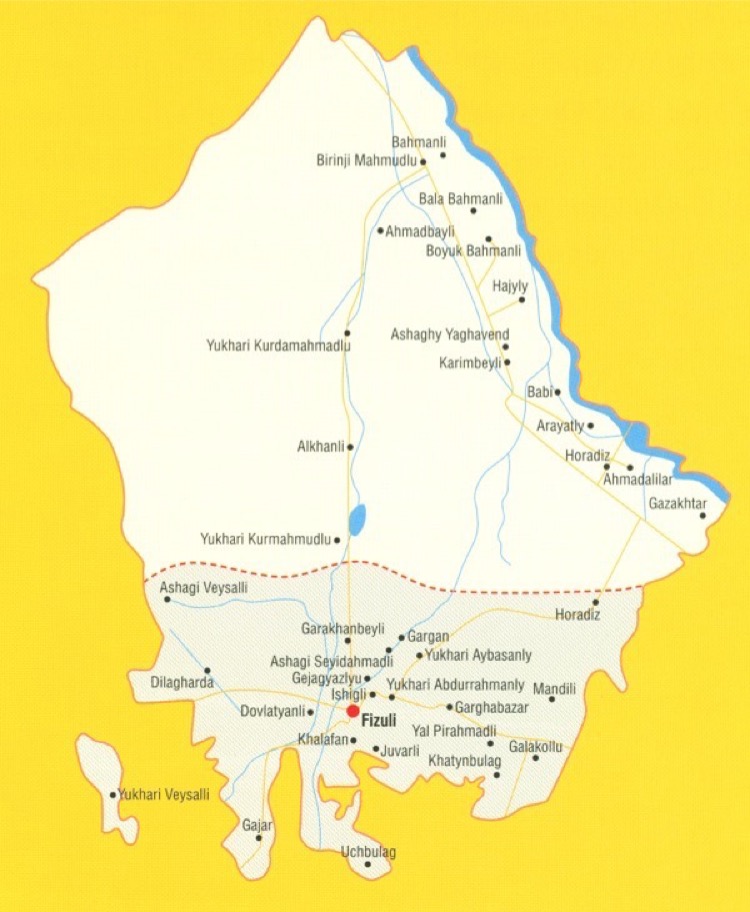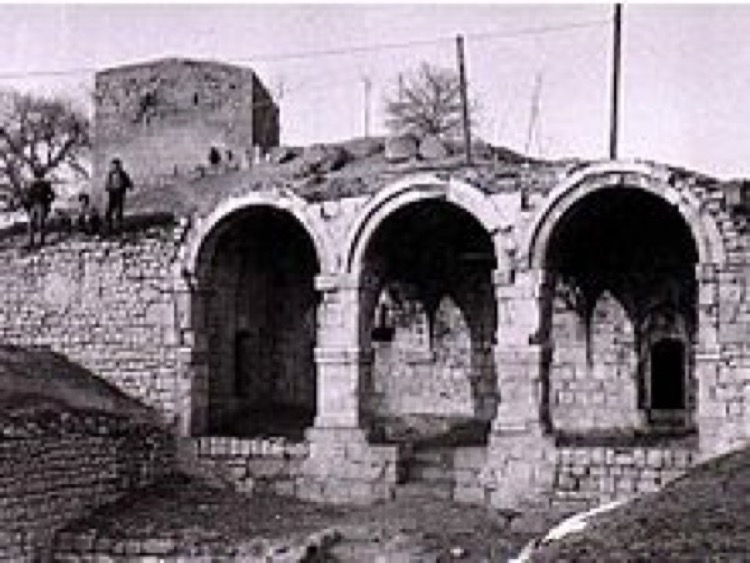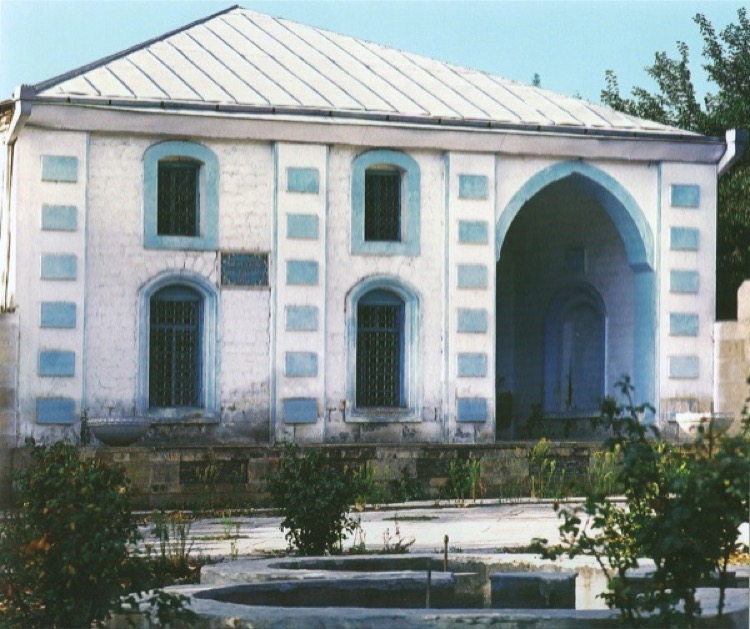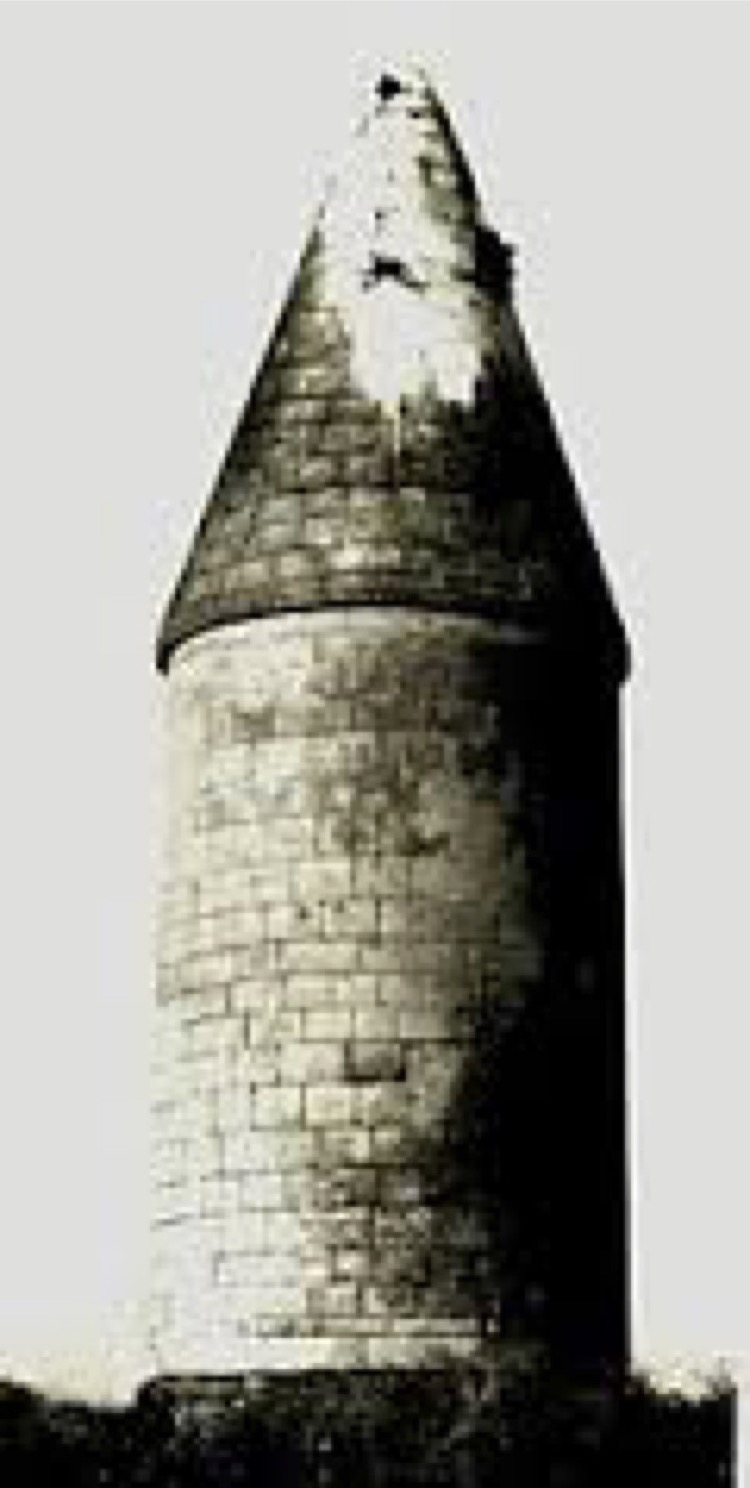Fuzuli district is the administrative district of the Republic of Azerbaijan. It neighbors with the Islamic Republic of Iran in the south-eastern part. Its area is 1390 km2; the population is 130,000 (01.01.2023). The central town is the city of Fuzuli. The Armenian invaders occupied the city of Fuzuli and the major part of the district on August 23,1993. From September 27 till November 7, 2020 the Azerbaijani army liberated 53 villages of the district and Fuzuli city from Armenian occupation.
The district covers the followings: Fuzuli city, Horadiz city, 16 newly constructed settlements (Gayidish-1, Gayidish-2, Gayidish-3, Gayidish-4, Gayidish-5, Gayidish-6, Gayidish-7, Gayidish-8, Gayidish-9, Gayidish-10, Gayidish-11, Zobujug-1, Zobujug-2, Zobujug-3, Zobujug-4, Zobujug-5) and villages of Ahmadbayli, Bala Bahmanli, Araz-Zergar, Araz Dilagharda, Birinji Mahmudlu, Ikinji Mahmudlu, Ahmadalilar, Gazakhlar, Mirzenaghili, Ashaghi Kurdmahmudlu, Yukhari Kurdmahmudlu, Alkhanli, Boyuk Bahmanli, Kerimbayli, Arayatili, Babi, Mollamaharramli, Horadiz, Ashaghi Seyidahmadli, Shukurbayli, Yukhari Seyidahmadli, Gorgan, Shekerchik, Shikhli, Gejegozlu, Uchunchu Mahmudlu, Ashaghi Veysalli, Yukhari Veysalli, Sarajig, Yukhari Refedinli, Gorazilli, Garadaghli, Yukhari Guzlek, Khatinbulag, Gajar, Divanalilar, Garakhanbayli, Merdinli, Gochahmadli, Arysh, Mollavali, Dedeli, Ishigli, Garghabazar, Yal Pirahmadli, Yukhari Yaghlivend, Garamammadli, Dilagharda, Gobu Dilagharda, Garvand, Yukhari Abdurrahmanli, Kurdler, Ashaghi Abdurrahmanli, Dordchinar, Seyidmahmudlu, Alasgarli, Huseynbeyli, Pirahmadli, Musabeyli, Mandili, Ashaghi Guzlek, Ashaghi Refedinli, Uchbulag, Juvarli, Khalafsha, Chimen, Yukhari Aybasanli, Dovletyarli, Ashaghi Yaghlivend, Garakollu, Govshadli, Hajili, Mirzajamalli, Zergar, Gizilgishlag, Aghbashli, Murtuzalilar, Hungutlu, Serdeli, Shikhimli, Govshatli.
The following educational and social institutions and its activities before the occupation: 86 secondary schools; 2 vocational schools; 54 kindergartens; 10 musical schools; 27 clubs; 2 museums; 90 libraries; 13 hospitals; 17 medical treatment points; 48 maternity services centers.
Many historical-archaeological and architectural monuments, including the ancient human settlements and burial mounds (New Stone Age; Bronze Age), turbehs (13th-16th centuries), mosques (16th-19th centuries), the caravanserai (1684) and others are left in the region.
Garghabazar caravanserai
Garghabazar caravanserai was built in 1681 at the hillside, in the centre of Garghabazar village of Fuzuli district. Caravanserai building is 23.7 metres wide, 34.7 metres in length. Garghabazar caravanserai is a single storeyed multi-yarded asymmetric caravanserai with arched rooms like corridors. The caravanserai was named Garghabazar after the village it was built in. Sometimes this historical monument is also called Shah Abbas caravanserai. The architect of the monument is unknown.
Concerning its architectural style, Garghabazar caravanserai bears resemblance to the architectural traditions of the Albanian period. There are two large slabs of stone on the right and left sides of entrance, in front of the guard rooms. Apparently the guards used to stand on those stones and watch the loads of the caravans. Caravanserai is considered an immovable historical monument of Azerbaijan.
During the occupation of Garghabazar village, the Armenians transformed this historical and architectural monument into a cowhouse.
On November 8, 2024, President of the Republic of Azerbaijan Ilham Aliyev laid a foundation stone for the village of Garghabazar in the Fuzuli district after its liberation from Armenian occupation.
Haji Alakbar Mosque
Haji Alakbar Mosque in Fuzuli city is one of the first works of Karbalayi Safikhan Garabaghi. A stone inscription bearing the words "This is the Architect Karbalayi Safikhan Garabaghi’s work" was found at the entrance door. Date of construction of the Mosque – the year 1307 Hegira calendar was also noted on inscription. This date equals 1889-1890 AD. This place of worship was named Haji Alakbar Mosque. Haji Alakbar was philanthropist. He allocated funds and invited masters from Shusha for construction of the mosque. As a token of honour and respect for his charitable deeds the local people buried Haji Alakbar bey opposite the first of the left windows of the mosque constructed by himself.
After the occupation of the Fuzuli city by the Armenian Armed Forces in August, 1993, Haji Alakbar Mosque was rendered useless.
Mir Ali tomb
The tower-shape tomb raised on a hill in Ashaghi Veysalli village of Fuzuli district is known among the locals under the name of Mir Ali Tomb. The two-storied inner structure of the tomb consists of an underground vault and an overground chamber.
Although there are no inscriptions and ornaments on the tomb, its construction technique and structural-spatial concept prove that this tomb was built during the reign of Elkhanids in late 13th-early 14th century.
Mosque in Garghabazar village
One of the oldest mosques of Karabakh is situated in Garghabazar village of Fuzuli district. Popularly known as Shah Abbas Mosque among the people, this mosque was described in scientific literature as Haji Giyaseddin Mosque. Because the door of the mosque bears an inscription as "This mosque was constructed by Haji Giyaseddin, the kind creature of Great Allah, in Hegira 1095". This date corresponds to AD 1683-1684. Haji Giyaseddin Mosque does not have a veranda. It was completely constructed of the local stone and consisted of one hall. The roof is in the arched ceiling form. Wooden materials were used nowhere except the entrance door. The mosque was built on the slab rock hill in the centre of the village.
During the occupation years Haji Giyaseddin Mosque was demolished by Armenian invaders. On November 8, 2024, President of the Republic of Azerbaijan Ilham Aliyev laid a foundation stone for the village of Garghabazar in the Fuzuli district after its liberation from Armenian occupation.
Immovable historical and cultural monuments of state importance
ARCHITECTURAL MONUMENTS
Name of the monument |
Construction date |
Location |
Caravanserai |
17th c. |
Garghabazar village |
Mausoleum of Mir Ali |
14th c. |
Ashaghi Veysalli village |
ARCHAEOLOGICAL MONUMENTS
Name of the monument |
Construction date |
Location |
Garabulagh barrow field |
The Bronze Age |
To the north-west from Fuzuli city |
Gunashtapa settlement |
2nd-1st millennium B.C. |
On the right side of Kondalan river |
Garakoraktapa settlement |
4th c. B. C.-1st c. and the Middle Ages |
On the right side of Kondalan river |
Zangartapa settlement |
The Bronze Age |
Zargar village |
Shakarjik settlement |
The Bronze Age |
Shakarjik village |
Balalartapa settlement |
Early Bronze Age |
To the south-east from Garakhanbeyli village |
Uzuntapa settlement |
Early Bronze Age |
Between Guruchay and Kondalanchay |
Meynatapa settlement |
Early Bronze Age |
Between Guruchay and Kondalanchay |
Khantapa settlement |
Early Bronze Age |
Between Guruchay and Kondalanchay |
Dadali underground system of water supply |
19th c. |
Dadali village |
Haji Bayram underground system of water supply |
19th c. |
Gochahmadli village |
Galpirahmadli underground system of water supply |
19th c. |
Gochahmadli village |
Underground system of water supply |
19th c. |
Sarajin village |
Immovable historical and cultural monuments of local importance
ARCHITECTURAL MONUMENTS
Name of the monument |
Construction date |
Location |
Administrative building |
|
Fuzuli city |
House of teachers |
19th c. |
Fuzuli city |
Building of Executive Power |
19th c. |
Fuzuli city |
Bath |
19th c. |
Fuzuli city |
Spring |
19th c. |
Garghabazar village |
Mosque |
19th c. |
Gorgan village |
Spring |
19th c. |
Ishigli village |
Spring |
19th c. |
Khalafsha village |
Mosque of Haji Alakbar |
18th-19th cc. |
Fuzuli city |
Mill |
19th c. |
Fuzuli city |
Bridge |
19th c. |
Fuzuli city |
Mosque |
17th c. |
Garghabazar village |
Mausoleum |
18th c. |
Garghabazar village |
Mosque |
19th c. |
Dadali village |
Bridge |
18th c. |
Gorazilli village |
Mosque |
19th c. |
Gajar village |
Mosque |
19th c. |
Mardinli village |
Bridge |
19th c. |
Ishigli village |
Bridge |
19th c. |
Shikhli village |
Mosque |
1889 |
Horadiz settlement |
Mosque |
20th cc. |
Horadiz settlement |
Imamzada |
19th c. |
Horadiz settlement |
Mosque |
19th c. |
Gejagozlu village |
Mosque |
19th c. |
Yukhari Veysalli village |
Mausoleum |
19th c. |
Seyidahmadli village |
Mosque |
19th c. |
Ashaghi Dilagharda village |
Mosque |
18th c. |
Gochahmadli village |
Bridge |
19th c. |
Gojahmadli village |
Arish bridge |
19th c. |
Gochahmadli village |
Sardarli mosque |
19th c. |
Gochahmadli village |
Bridge |
17th c. |
Gochahmadli village |
Mosque |
19th c. |
Gochahmadli village |
Ali bridge |
19th c. |
Sarajig village |
Bridge |
19th c. |
Sarajig village |
Bridge of Karam |
19th c. |
Sarajig village |
Mosque |
18th c. |
Garadaghli village |
Mausoleum |
19th c. |
Zuzari Divanallar village |
Mosque |
19th c. |
Garakhanbayli village |
GARDEN-PARKS, MONUMENTAL AND MEMORIAL MONUMENTS
Name of the monument |
Construction date |
Location |
Monument of Mahammad Fuzuli |
1970 |
Fuzuli town |
Memorial monument to Azerbaijani citizens, who died during the World War II |
|
Fuzuli town, Central park |




